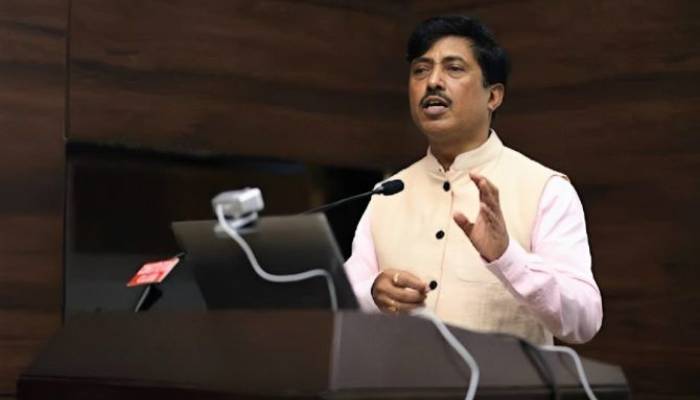
or

G.R. Raghavender, the Director & Registrar of Copyrights in India, talks about copyright law, its acquisitions, piracy and challenges in an exclusive interview to Satrajit Moitra
Acquisition of copyright is automatic and it does not require any formality. Copyright comes into existence as soon as a work is created and no formality is required to be completed for acquiring copyright. However, Section 48 of the Copyright Act, 1957, treats the certificate of registration of copyright and the entries made therein serve as prima facie evidence in a court of law with reference to dispute relating to the ownership of copyright. After an application is filed, the applicants receive a diary number and he has to wait for a mandatory period of 30 days so that no objection is filed in the Copyright Office against his claim that a particular work is created by him. If such an objection is filed, it may take another one month to decide as to whether the work could be registered by the Registrar of Copyrights after giving an opportunity of hearing the matter from both the parties.
If no objection is filed, the application goes for scrutiny from the examiners. If any discrepancy is found, the applicant is given 30 days’ time to remove the same. Then, it may take two to three months for registration of any work in the normal course. The cooperation of the applicant in providing necessary information is the key for speedy disposal of the matter.
The Internet offers the fastest means ever of reproduction and distribution of information or various copyrighted works. The Copyright Act, 1957, has been amended in 2012 to extend protection of copyright in digital/multimedia environment. The amended Act also introduced digital rights management provisions as per the provisions of World Intellectual Property Organisation (WIPO) Internet Treaties namely, WIPO Copyright Treaty (WCT) and WIPO Performances and Phonograms
Treaty (WPPT), which have set the international standards. The small entrepreneurs will certainly benefit from these new provisions which extend protection of copyright in digital/multimedia environment.
The LW Bureau is a seasoned mix of legal correspondents, authors and analysts who bring together a very well researched set of articles for your mighty readership. These articles are not necessarily the views of the Bureau itself but prove to be thought provoking and lead to discussions amongst all of us. Have an interesting read through.

Lex Witness Bureau

Lex Witness Bureau

For over 10 years, since its inception in 2009 as a monthly, Lex Witness has become India’s most credible platform for the legal luminaries to opine, comment and share their views. more...
Connect Us:


The Grand Masters - A Corporate Counsel Legal Best Practices Summit Series
www.grandmasters.in | 8 Years & Counting
The Real Estate & Construction Legal Summit
www.rcls.in | 8 Years & Counting
The Information Technology Legal Summit
www.itlegalsummit.com | 8 Years & Counting
The Banking & Finance Legal Summit
www.bfls.in | 8 Years & Counting
The Media, Advertising and Entertainment Legal Summit
www.maels.in | 8 Years & Counting
The Pharma Legal & Compliance Summit
www.plcs.co.in | 8 Years & Counting
We at Lex Witness strategically assist firms in reaching out to the relevant audience sets through various knowledge sharing initiatives. Here are some more info decks for you to know us better.
Copyright © 2020 Lex Witness - India's 1st Magazine on Legal & Corporate Affairs Rights of Admission Reserved